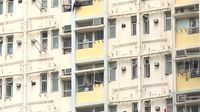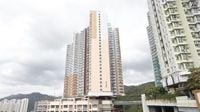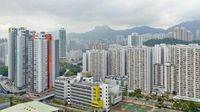On March 21, 2025, Hong Kong's Housing Authority took a significant step to tighten the policy governing wealthy public housing tenants. The Subsidized Housing Committee approved new measures that will increase the rent for wealthy tenants while adjusting the income thresholds that dictate whether tenants are required to move out of their units.
Currently, approximately 42,000 public housing households are classified as wealthy because their incomes exceed the limit by two to five times. The new policy transitions the rental system from a two-tier to a three-tier structure, raising the extra rent payable by these households. The new rental tiers will require them to pay rents that are 2.5, 3.5, and 4.5 times the base rent, as opposed to the previous 1.5 to 2 times the base rent.
These changes are set to impact roughly 40,000 households, with the new rent structure taking effect starting from the October 2025 reporting cycle. The first payment under these new rates will be due on October 1, 2026. According to the committee's chairman, Huang Biyu, the intended purpose is not merely to augment government revenues but to promote upward mobility among tenants. “The purpose of the new measures is not to increase government revenue but to encourage upward mobility among tenants,” Huang stated.
The adjustments in income limits will also affect tenants' eligibility to stay in their units based on their financial status. Households that have incomes exceeding five times the limit must vacate their units. The policy will now include households that fall between four and five times the limit, requiring those exceeding four times to also prepare for relocation within a set timeframe of four years, across two reporting cycles.
As it stands, about 35,000 households are expected to pay the new 2.5 times rent; roughly 4,200 will pay 3.5 times, and about 200 households will need to pay around 4.5 times the base rent. This latter tier represents a substantial increase of up to 125% compared to their previous rentals. Huang explained, “Many households will only be paying 2.5 times the base rent, and this is not burdensome compared to average public housing families.”
The increase in rental payments is projected to raise approximately 150 million in additional revenue for the authority each year. However, Huang noted that the elevation in the rental percentage relative to total household income is still manageable, averaging around 11%, significantly lower than the median rate for private housing, which tends to be approximately 20% higher.
Furthermore, the committee is also proposing measures to facilitate upward economic mobility for these households. If a public housing tenant family member manages to purchase private property or subsidized housing using the White Form category, they will be permitted to retain their current unit until the purchase agreement is finalized and the unit is handed over.
In a potential area of contention, the new policy mandates that individual family members must independently declare their assets. This is to enhance scrutiny and prevent the occurrence of false declarations. Should any member of a household be found guilty of making a false report, they could face sanctions that include a five-year ban from applying for public housing.
The changes announced by the Housing Authority are expected to significantly affect the socio-economic landscape of public housing in Hong Kong. As households adjust to the new tiers of rental obligations, the hope is that this will generate greater financial equity and encourage tenants to seek opportunities beyond public housing.
All eyes will be on the authority's upcoming actions, as many expect more detailed guidelines to manifest during the implementation period leading up to the first payments in late 2026. The adjustments are a crucial development in addressing housing issues in Hong Kong, with many still grappling with affordability debates.








